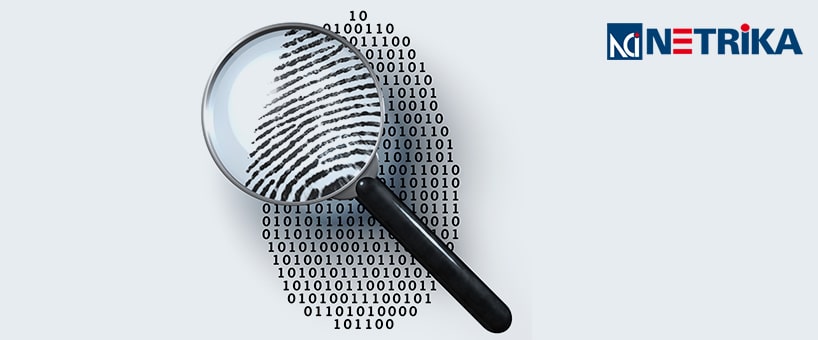Some Popular Misconceptions About Forensic Investigation
- July 16, 2020
- Posted by: Netrika
- Category: Forensics

Today, the world has turned digital with a vengeance. Each and every day, we are engrossed with our personal computers, laptops, PDA’s and of course mobile phones. The amount of information that the ordinary person goes through in a day is quite phenomenal. While digital independence is good for all practical purposes, there is also an inherent risk that you may become prey to white collar crime while you happen to be online. As a direct result of this, the need for computer forensic investigators is growing at a fast rate.
However, common people are still in the dark about computer forensic investigators. To most people, computer forensic investigations mean that there will be spectacled and coated experts running over the scene of the crime with specialized tools and techniques to ferret out any instance of wrongdoing. Corporate forensic investigations in real life entail so much more. With corporates and small businesses the role of the forensic investigator is quite important. In instances of white collar crime, they are the first respondents to the scene of the crime and their expertise and experience help to nab the criminals who had committed the crime.
Despite all of this, people still harbor misconceptions when it comes to forensic investigators and their line of work. Here are some common myths about forensic investigators and how they function.
Myth 1: It is only the police who carry out the forensic investigations
This is not true at all. The increase in the complex and sophisticated financial crimes which are often carried out over international borders challenges the diminishing resources of law enforcement agencies and other regulators. The crime carried out is often not enough to support a criminal conviction and it thus might fall outside the purview of an investigation by the government. It also might not be the most effective way to deal with the crime. Forensic investigators are experts at what they do and in most cases have a stellar background to support their skills. Forensic investigators are often drawn from the most senior ranks of the law enforcement as well as prosecution and regulatory agencies. These forensic investigators have huge experience and talent which is available to the private sector and they manage the cases of their clients with a great deal of finesse and expertise.
Myth 2: Forensic experts wear white coats, latex gloves and they work for the police
While there may be some experts who carry out this work donned in the attire of lab technicians, it is increasingly likely that the forensic experts are normal people like me and you, who are set apart by the expertise and skill that they bring to the job. The modern forensic experts analyze complex business transactions and relationships, all the while looking for the obvious and the not so obvious links and telltale evidence that might help them in wrapping up the case. Their tools in trade would comprise of mapping as well as display software applications that will in all deliberation scan deleted records. They also trawl through subscriber data to piece together key evidence that will help them to build up a watertight case.
Myth 3: Forensic investigation is all about quantifying loss, as well as economic damage for the purposes of insurance for different types of crimes.
While it is true that many forensic accountants specialize only in these areas and have precious little to do with anything that involves a criminal investigation, there are increasing numbers of forensic experts who are stepping into the dark and murky areas of corporate fraud and investigations which ensure that the expertise of the forensic expert is called upon.
Myth 4: Role of forensics is to produce the evidence for the court
While this is required on a as per case basis for criminal and civil proceedings, forensic investigations can also be employed to dig up the not so obvious evidence that might force the other side to settle or to abandon a particular action. Forensics are increasingly being used in the workplace wherein emails, SMS texts, Internet messaging and also web browsing and social networking can be analyzed in a routine manner. Forensic investigators analyze and determine when and how an electronic file was accessed, and they also uncover whether these files had been tampered with or sent on to another party.
Myth 5: Forensic investigation and forensic accounting are the same.
Nothing could be farther from the truth. The work that is carried out by forensic accountants is a small part of the overall scope of work for the forensic investigator. The forensic investigator is tasked with a whole lot of more responsibilities than the forensic accountant.
When it comes to forensic investigations, Netrika is a top player in the field. The company has the best forensic investigators who are thoroughly trained to pursue a case with doggedness until the real culprit is uncovered and punished.
